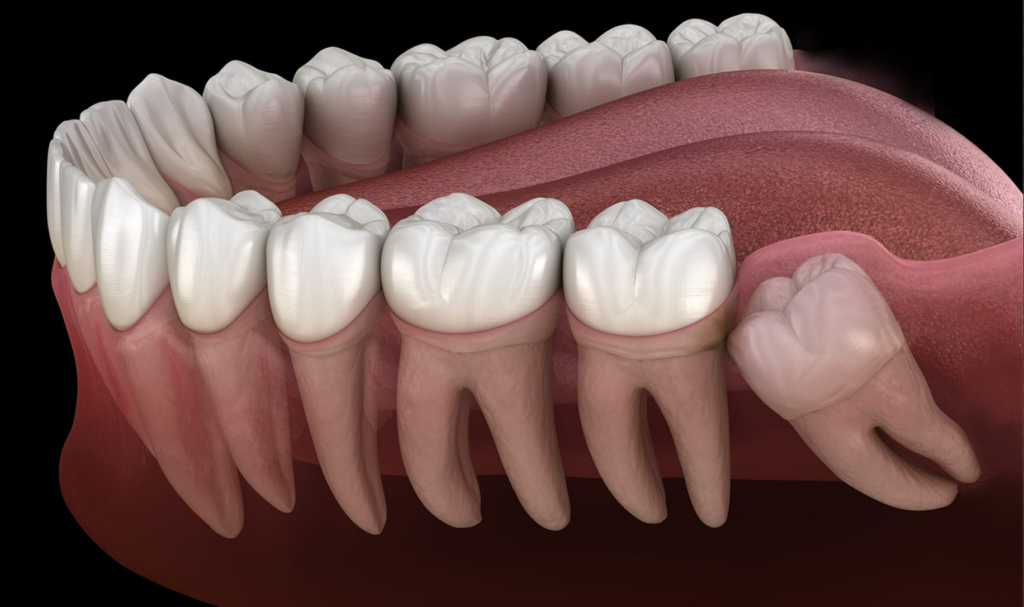
Please Contact Us


Wisdom teeth are the teeth at the back of your mouth (the third molar teeth). They tend to come through (erupt) in the late teens or twenties. Some wisdom teeth do not come through fully (partly erupt) and get stuck (or impacted) against nearby teeth or bone. This often leaves a flap of gum over your tooth. Others grow too long (over erupt).
A wisdom tooth may need to be removed for one or more of the following reasons.
You may need to take up to a week off work. You should be able to return to normal activities within a week.
Most people make a full recovery.
Let us know your problem, make an appointment and receive the best advice
from specialists in the field.